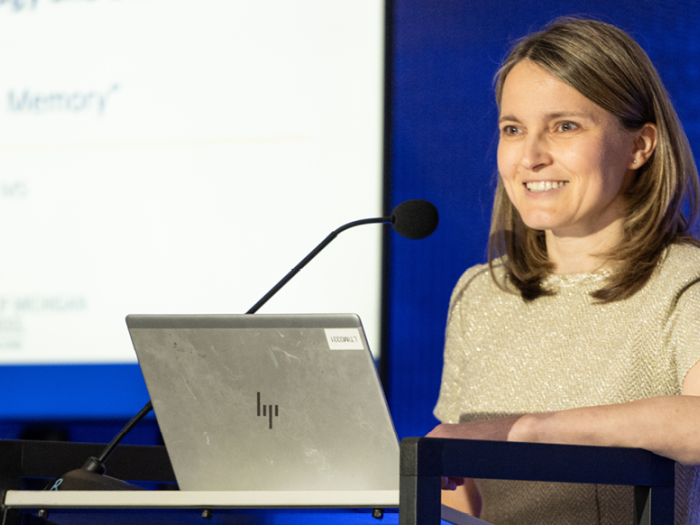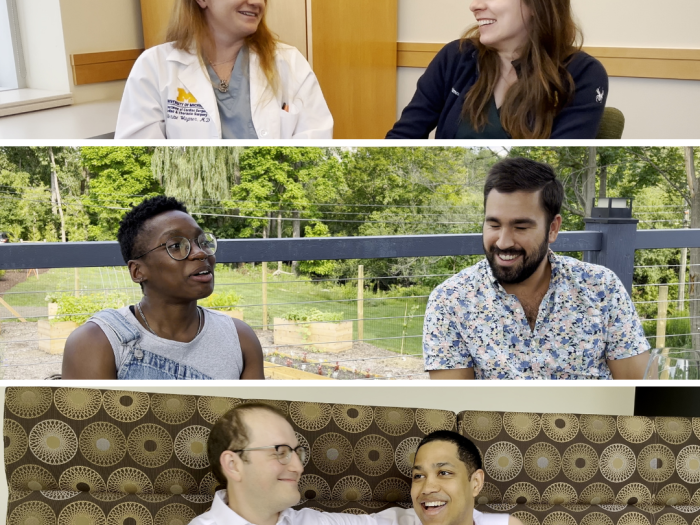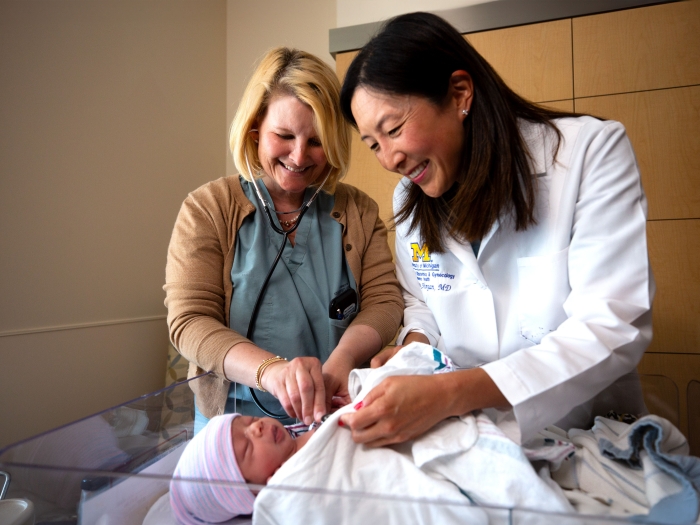Saturday, February 11 is UN Day of International Women and Girls in Science, and an opportunity to celebrate the international women and girls of the DCMB community. We are so proud of all your contributions and achievements!
As an example of the talent and dedication that international women bring to our department, we are pleased to feature Mahnoor Gondal, a Ph.D. student who is co-mentored by Dr. Arul Chinnaiyan and Dr. Marcin Cieslik (DCMB and Department of Pathology). Her nomination reads: “Since coming to the United States from Pakistan in 2021, Mahnoor quickly integrated into the Dr. Marcin Cieslik’s team and has established herself as a leader in the lab. She is one of the most optimistic people I have ever met and brings an unmatched excitement to her science that has allowed her to make rapid progress on her projects. Her work is high-quality, rigorous, and employs novel methods to study MHC molecules in cancer. Further, Mahnoor is a genuine and kind person whose thoughtful gestures endear her to everyone she interacts with. In sum, Mahnoor is an incredible woman who embodies the type of scientist that the UN’s International Women and Girls in Science day was made to celebrate.”
“This passion for knowing the unknown is a catalyst to bring people together from all across the world in different forms and consortiums to contribute their unique skill sets and background – it’s a very nice feeling to be a part of that.”— Mahnoor Gondal, Ph.D. student
Meet Mahnoor Gondal:
“I like the idea of the uncertainty of things in the biological systems, especially cancers. The biological systems are hierarchical and complex but in them are hidden patterns, and from what I have read and seen you only see those patterns when you are really passionate and you get lucky. The beautiful thing that I observed about scientists is that they are willing to gamble on their idea, sell it to other people, lead to establish teams, and brave enough to go after it not knowing what the outcome will be and more often than not "fortune favors the brave" —I love that! This passion for knowing the unknown is a catalyst to bring people together from all across the world in different forms and consortiums to contribute their unique skill sets and background – it’s a very nice feeling to be a part of that. – Finding clues and crumbs that nature has left for us to find to advance and help human life and the quality of that life.”
Did you know?
(Source: UN International Day of Women and Girls in Science, 11 February)
- Women are typically given smaller research grants than their male colleagues and, while they represent 33.3% of all researchers, only 12% of members of national science academies are women.
- In cutting edge fields such as artificial intelligence, only one in five professionals (22%) is a woman.
- Despite a shortage of skills in most of the technological fields driving the Fourth Industrial Revolution, women still account for only 28% of engineering graduates and 40% of graduates in computer science and informatics.
- Female researchers tend to have shorter, less well-paid careers. Their work is underrepresented in high-profile journals and they are often passed over for promotion.
- Women accounted for one in three (33%) researchers in 2018. They have achieved parity (in numbers) in life sciences in many countries and even dominate this field, in some cases. However, women remain a minority in digital information technology, computing, physics, mathematics and engineering. These are the fields that are driving the digital revolution and so, many of the jobs of tomorrow.
Congratulations to all the DCMB international women in science!





